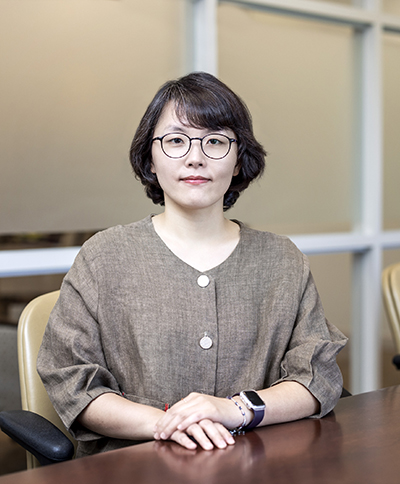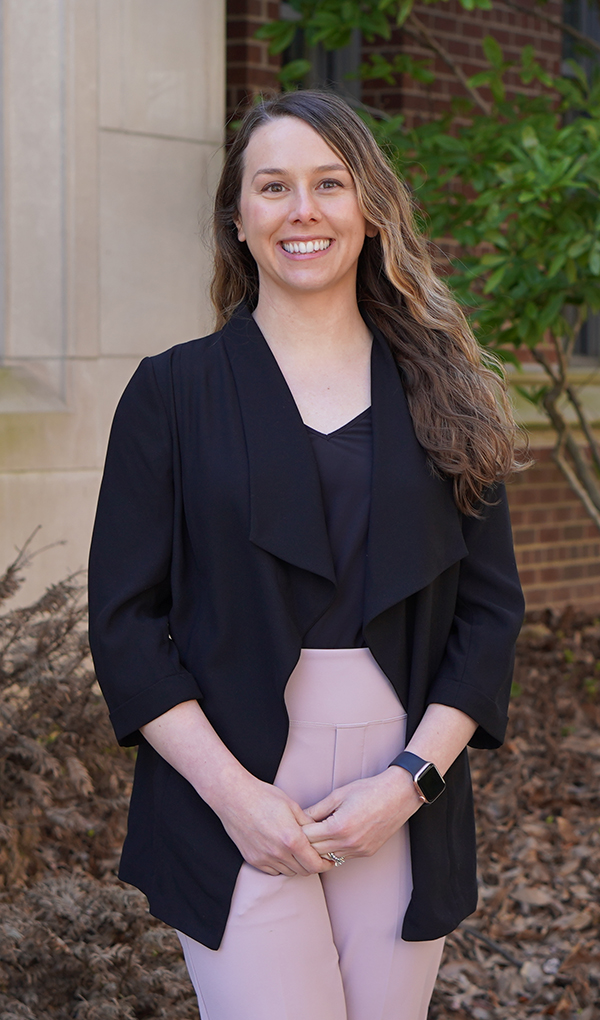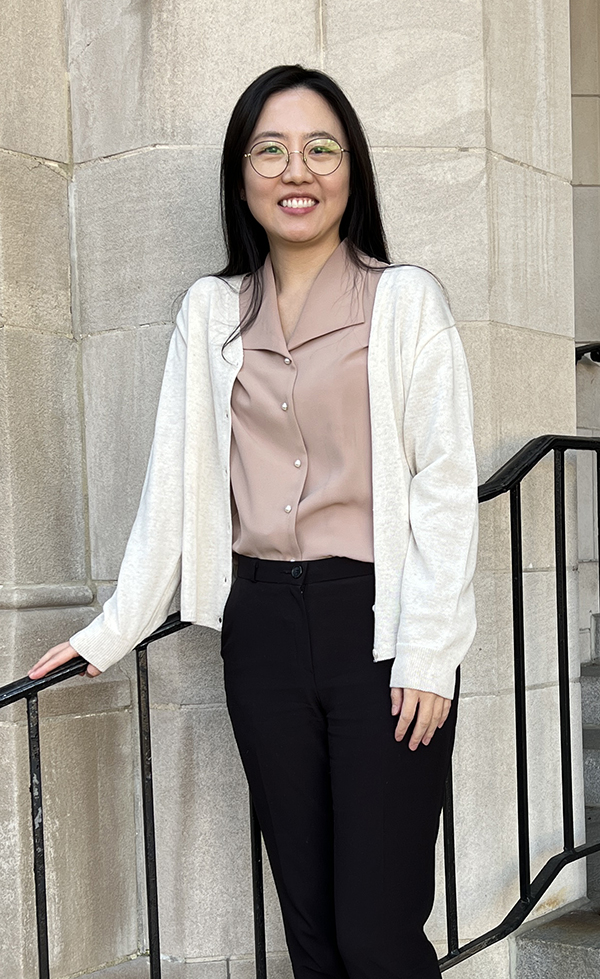Postdoctoral program launches new nurse scientists into research and faculty careers
Vanderbilt School of Nursing takes its mission of producing nurse scientists seriously. Every two years or so, promising new PhD nurse scientists are welcomed into the School of Nursing’s postdoctoral research program, where they work with faculty mentors to fine-tune research skills, hone grant-writing abilities, learn to manage a research team and create long-term career and research plans.
“The experience was a really nice stepping stone to help me become a scholar, independent PI and faculty member,” says Eunji Cho, PhD, now an assistant professor at the Boston College Connell School of Nursing. “I had the opportunity to grow as a scholar, in teaching and in mentoring. I was able to attend faculty meetings and monthly department meetings to become familiar with the system before I became a faculty member.”
Postdocs in VUSN’s program build their networks, work on interdisciplinary
research projects and enhance their writing and communication skills. As part of their two-year fellowship, they receive an annual stipend, benefits and research funding. Senior Associate Dean for Research and Postdoctoral Fellowship Director Mariann Piano, PhD, FAAN, FAHA, leads the program along with Co-Director Jeremy Neal, PhD, FACNM.
“Former Dean Linda Norman created this program, which is institutionally funded,” says Piano, who holds the Nancy and Hilliard Travis Chair in Nursing. “The experience allows them to rapidly accelerate their research while continuing their research and academic training. They also receive a stipend to support the launch of a pilot grant and take advantage of applying for internal grant programs at Vanderbilt.”
Postdocs choose one of VUSN’s signature areas of research: acute and chronic illness, palliative care science, data science and health technologies, or pregnancy, mother, infant and family health. They work to acquire new knowledge, publish in scientific journals, present research at conferences and complete media training—all with the goal of benefiting public health in tangible ways.
“More than ever, postdoctoral fellowships are considered to be an essential career step for PhD-prepared nurses who want to pursue careers in a research-intensive environment, whether that is in an academic, clinical, industrial or policy setting,” Neal says. “There are many benefits of postdoctoral training, including acquiring professional and advanced research skills needed for a productive independent research career. Throughout my career, I have seen strong postdoctoral training increase research productivity and grant success above and beyond that typically seen in PhD-prepared nurses without postdoctoral preparation.”
Changes, Growth and Development
Cho’s research, which she fine-tuned as a postdoc, is focused on finding ways to help young adults with cancer achieve something positive, despite what they are going through.
“We cannot avoid that kind of situation, so how can we help these young adults gain something from that experience?” she says. “I use a lot of methods, like art and photos, storytelling and doing some intervention, while still trying to understand how we can improve their health through nursing.”
 While at VUSN, Cho worked with her mentor, Associate Professor Terrah Foster Akard, MSN’01, PhD’08, FAAN, who has expertise in storytelling and legacy interventions for children with palliative care needs. Akard taught Cho how to use digital storytelling in patient care and how to recruit diverse participant groups online for research.
While at VUSN, Cho worked with her mentor, Associate Professor Terrah Foster Akard, MSN’01, PhD’08, FAAN, who has expertise in storytelling and legacy interventions for children with palliative care needs. Akard taught Cho how to use digital storytelling in patient care and how to recruit diverse participant groups online for research.
“After I earned my PhD, I still felt like I was the same person, but when I became a postdoc at Vanderbilt, I found that my networking and my research expanded,” Cho says. “With that opportunity, I saw changes, growth and development, and it made me feel like I was on the right track. Based on that experience, I went to Boston College as a faculty member.”
Cho values her time working with Akard and all that she learned about mentorship. “With Dr. Akard, I learned how to mentor students,” Cho says. “I did my best in the supportive environment. I felt proud when I became a faculty member because I can continue mentoring and transfer these strategies and values. I’m so happy to be the person who can continue her legacy.”
Expertise to Share
Current postdoctoral scientist Soojung Ahn, PhD, studies ways to prevent cardiovascular disease in family caregivers by using early cardiovascular markers such as blood pressure variability and arterial stiffness.
“Our postdocs already have evidence of scholarship, such as published papers and research methodological experience,” Piano explains. “For example, we were very interested in working with Soojung because she had expertise in measuring arterial stiffness, and that’s something our group is interested in. We recruit postdocs who also have expertise to share.”
Ahn’s interest in caring for caregivers developed as she watched her mother care for her grandmother, who was diagnosed with dementia. “I saw, when I was young, how burdensome caregiving is,” Ahn says. “Then while working as a registered nurse in the intensive care unit in South Korea, I noticed a lot of caregivers struggling with all kinds of symptoms and uncertainty and a lack of support for them.”
“My ultimate goal of research is to develop community-based behavior interventions for family caregivers that help them maintain good health behaviors while they provide care to their loved ones.” – Soojung Ahn
Ahn wanted to help on a larger scale, and realized she could do more as a nurse scientist. After earning her PhD, she wanted to further develop her research competencies and thought Vanderbilt would be a perfect place for her to pursue postdoctoral studies.
Ahn works under the guidance of mentors Piano and Assistant Professor Mulubrhan Mogos, PhD. She appreciates the opportunity to work with researchers who have expertise in a wide range of cardiovascular areas, including maternal cardiovascular health, cardiovascular risk and behavioral interventions for reducing sedentary behavior. Working with the researchers allows her to fine-tune her research skills as well as broaden the scope of knowledge.
“My ultimate goal of research is to develop community-based behavior interventions for family caregivers that help them maintain good health behaviors while they provide care to their loved ones,” says Ahn. She is thankful she found a program to equip her with knowledge and skills necessary to achieve these professional goals in a very supportive and resourceful environment. “I believe all the knowledge and experience that I am gaining in this postdoctoral program will serve as a solid foundation for my program of research. This is an important period for me as a future independent researcher.”
High Caliber Collaboration
Another current postdoctoral scientist Nadia Markie Sneed, PhD, who has a background in nutrition science, researches ways to prevent Type 2 diabetes through diet adjustments. Sneed’s years working with patients helped her realize that many common issues could be corrected with dietary changes.
“As a nurse practitioner practicing for eight years, I realized that I was treating and diagnosing prediabetes frequently,” Sneed says. “I became more interested in the intersection between nutrition and health because it was part of my background in nutrition science.”
 As a family nurse practitioner with a busy clinical schedule, Sneed felt like there was more to learn about the connection between nutrition and health—information that could make a big difference in patients’ lives and in health providers’ ability to help. That interest sent her back to school for her PhD and a career in research.
As a family nurse practitioner with a busy clinical schedule, Sneed felt like there was more to learn about the connection between nutrition and health—information that could make a big difference in patients’ lives and in health providers’ ability to help. That interest sent her back to school for her PhD and a career in research.
“We have so many preventable conditions that could be treated by using diet alone,” Sneed says. “I thought that this work could help us implement diet itself, essentially like a non-pharmacological treatment option for patients, instead of us constantly treating these conditions related to lifestyle and diet.”
Sneed’s mentors are Piano and William Heerman, MD’08, MPH’14, of the Department of Pediatrics at Vanderbilt University Medical Center. Heerman studies dietary interventions for obesity prevention in children.
“We’re trying to encourage people to eat healthy, nutritious, minimally processed whole food ingredients,” Sneed explains. “We’re trying to get rid of the ultra-processed foods. That’s the premise of this work, to see if the diet itself can prevent diabetes for these high-risk individuals.”
Sneed is using her research startup funds to work on a feasibility study and, with help from Piano, has honed her grant writing skills and secured additional funding. Her goal is to continue studying dietary interventions, complete her pilot work, hold randomized clinical trials on dietary interventions and families for diabetes prevention and become an established scientist.
“Being at an academic center like Vanderbilt, where I work with high-caliber scientists to continue this work and collaborate across the different institutions, offers me the ability to become independent,” Sneed says. “It’s helping me grow as a researcher and a nurse scientist and also eventually as a nurse educator.”
Neal says interprofessional collaboration is an additional benefit of postdoctoral programs. “Scientists with postdoctoral opportunities are also well-positioned to establish and strengthen peer networks and interdisciplinary research teams in their area of science,” he says. “That often opens doors for collaborative funding opportunities through the National Institutes of Health and other funding agencies.”
Sneed appreciates the dedication of her mentors and those who support the VUSN postdoctoral program. “The School of Nursing puts a lot of value on postdocs and is really supportive,” Sneed says. “I think that’s important, and Dr. Piano and other faculty make sure that we have the resources and collaborations with people that we need in order to be successful.”
Sneed has also been involved in the Vanderbilt Postdoctoral Association, formerly as treasurer and now as scholarly learning co-chair, which helps her also feel engaged with postdoctoral scientists and the community outside of the School of Nursing.
“We’re trying to get rid of the ultra-processed foods … to see if the diet itself can prevent diabetes for these high-risk individuals.” – Nadia Markie Sneed
Piano says that interaction outside the school is important. “Part of our program too, is to be sure that they are integrated into the bigger Vanderbilt community, and we encourage them to serve on the postdoctoral committees, within the postdoctoral organization,” Piano says, adding that the experience helps
them build additional skills that they can use in academic and research careers. “They’re all so hard working. They have been fabulous mentees—receptive, respectful and prepared—a true
joy to work with.”
